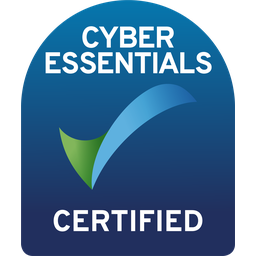As you know, we’ve previously touched on the importance of making your marketing more accessible including how and why to do this. Today we’ll look specifically at how you can make the content you put out, either on your site or socials, accessible for all using video captioning.
We're looking at you, pre-recorded video
Did you know that since 2020 any website run by a business receiving public funds must have accurate captioning on any pre-recorded content?
Who does this apply to? Hospitals, police, local councils, colleges and some universities. Nurseries, primary schools and secondary schools must also meet specific standards but get a partial exemption.
That’s why you may have seen a surge of videos on your socials now cropping up with automatically generated captions. Sadly, however, the automatic speech recognition (ASR) tools built into these platforms usually falls short of the accuracy standards required.
What do the experts say?
The GDS (Government Digital Service) say that human editing on top of automated captions is imperative to avoiding mistakes. Surely then it makes it more costly in your time so are you better off paying for a service instead?
Adding more spend to the marketing budget
The GDS state that as captioning services are available at a relatively low cost, complete disregard to incorporate captioning is unacceptable.
The good news is that there are exemptions to this and allowances can be made. For instance, if the editing costs pose a particularly difficult financial burden on your business, then an exemption may be granted.
Benefits of using captioning on your videos
Although these rules are just for publicly funded businesses at present, we can see them becoming a must for most in future. So why not think about the benefits of using captions in your video now to future proof your content?
Language Barriers
The obvious one here. Accessible videos = higher praise from Google. If the search engines can see you make your content easily searchable, shareable, usable and useful, they’ll favour you in the rankings.
Hello, SEO
If you’re not a native speaker, watching a video in a language that isn’t your first can be tricky. Having easy-to-read captions can help avoid any miscommunications and allow for better transfer of information.
Sound of the underground
Think about when people are consuming content; on the commute, on the sofa, just before bed; times when relying on sound alone can be tricky – even if you do have headphones! People are less likely to skip over your video if it uses clear captioning as they can still consume the message but not feel like they are causing a disturbance.
What happens if I don’t use captioning?
Again, if you don’t currently work for a publicly funded organisation, you needn’t worry just yet.
However, it may be useful to know that action may be taken against your place of work if they refuse to use captioning. A person who relies on captioning has the right to file a complaint, and even a lawsuit, with the Equality and Human Rights Commission.
Want to know other ways to make your website accessible? We’ve got a whole blog on it.






